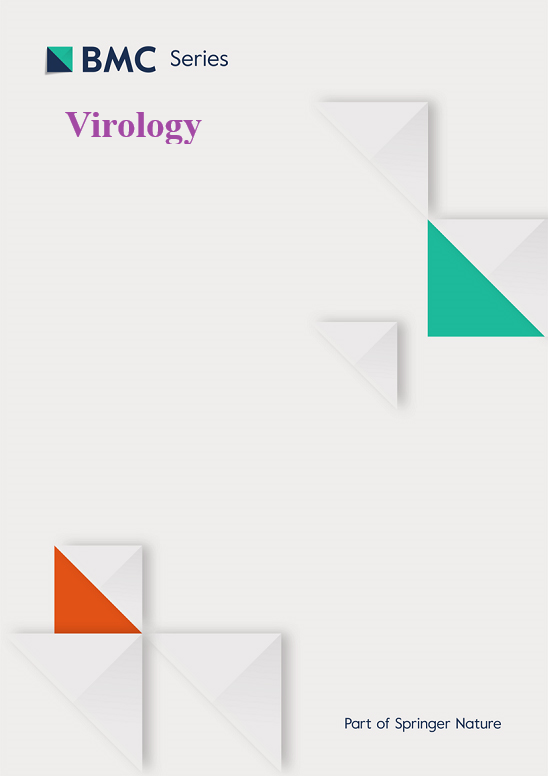Epinephelus Coioides miR-21 在虹彩病毒 SGIV 感染和复制中的调控作用。
IF 2.8
3区 医学
Q3 VIROLOGY
引用次数: 0
摘要
虹彩病毒SGIV是一种高致病性鱼类病毒,可导致华南地区海水养殖鱼类翘嘴红鲌(Epinephelus coioides)90%以上的死亡。在本研究中,SGIV 感染可显著抑制褐鲤 miR-21 的表达。过表达miR-21可抑制病毒关键基因(ICP18、VP19、LITAF和MCP)、SGIV诱导的CPE和病毒滴度的表达。过表达 miR-21 会促进 AP-1/NF-κB 的启动子活性、SGIV 诱导的细胞凋亡和 caspase 3/9 的活性。抑制 miR-21 则会产生相反的结果。Coioides E. PDCD4 是 miR-21 的靶向基因,我们推测 PDCD4 的下调至少可以部分解释所观察到的抗病毒作用。这些研究表明,miR-21 可抑制 SGIV 的感染和复制,这可能为进一步探索 SGIV 入侵机制提供了分子基础。本文章由计算机程序翻译,如有差异,请以英文原文为准。
The regulatory role of Epinephelus Coioides miR-21 in the infection and replication of iridovirus SGIV
Iridovirus SGIV is a highly pathogenic virus of fish that can cause more than 90% mortality in Epinephelus coioides, a marine farmed fish in South China. miRNAs can be involved in regulating the development of virus-induced diseases. In this study, SGIV infection could significantly inhibit the expression of E. coioides miR-21. And, overexpressing miR-21 could inhibit the expressions of viral key genes (ICP18, VP19, LITAF and MCP), SGIV-induced CPE, and viral titers. Overexpression of miR-21 promoted the promoter activity of AP-1/NF-κB, SGIV-induced apoptosis, and activities of caspase 3/9. Inhibiting miR-21 could produce the opposite results. E. Coioides PDCD4 is a targeting gene of miR-21, and we speculate that PDCD4 downregulation may, at least in part, explain the observed antiviral effects. These studies indicate that miR-21 could inhibit the infection and replication of SGIV, which might provide a molecular basis for further exploring the mechanism of SGIV invasion.
求助全文
通过发布文献求助,成功后即可免费获取论文全文。
去求助
来源期刊

Virology
医学-病毒学
CiteScore
6.00
自引率
0.00%
发文量
157
审稿时长
50 days
期刊介绍:
Launched in 1955, Virology is a broad and inclusive journal that welcomes submissions on all aspects of virology including plant, animal, microbial and human viruses. The journal publishes basic research as well as pre-clinical and clinical studies of vaccines, anti-viral drugs and their development, anti-viral therapies, and computational studies of virus infections. Any submission that is of broad interest to the community of virologists/vaccinologists and reporting scientifically accurate and valuable research will be considered for publication, including negative findings and multidisciplinary work.Virology is open to reviews, research manuscripts, short communication, registered reports as well as follow-up manuscripts.
 求助内容:
求助内容: 应助结果提醒方式:
应助结果提醒方式:


